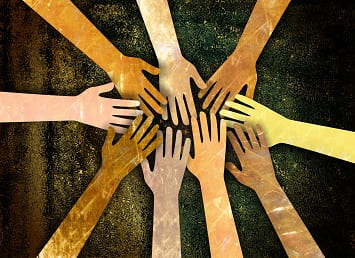July 05, 2016
By Pedro Pacheco Mendoza

Mental health concerns affect people regardless of their religious background, ethnicity or nationality. But how do people from different communities react to mental health issues? What beliefs are held regarding mental health issues in minority communities? What resources are available for families when their primary language is not English? How can we reach out and include all families that are searching for hope? These questions have shaped our efforts at NAMI Lane County, Ore.
Starting the conversation about minority mental health can be intimidating for several reasons: you might not know that much information about other cultures, you might not identify yourself as part of a minority community and you definitely don’t want to offend anyone. That’s why National Minority Mental Health Awareness Month is a great opportunity to engage with and help more families. We used this awareness month to show that we are actively working to make our community more inclusive, because mental health conditions affect everyone.
We got 25 agencies to participate in our Hope Starts with You Symposium with the intention of creating a network of professionals who care about minority mental health. During the event, we discussed the barriers minority communities experience when trying to access mental health care and how we can all work together to remove those barriers.
We invited the city mayor to proclaim July as Minority Mental Awareness Month and to join our initiative. She accepted our request and has been helping us create a more conscious environment for minority mental health. We also got pledges from city council members, giving NAMI Lane County visibility.
If you are interested in doing a similar project, here are a few tips:
When asked what they found most valuable about the symposium and why, some attendees shared the following:
The Hope Starts with You Symposium worked for both our affiliate and our community. Simple and dynamic, it allowed people to start the conversation on this important topic. I recommend you analyze what works best for your community and ask for help from other agencies and then collaborate. After all, sharing hope is all that matters.
Pedro Pacheco Mendoza works for NAMI Lane County as the Latino Outreach Coordinator. He graduated from the University of Oregon in the Family Human Services program. He has been working with low-income families in Lane County for eight years. He loves NAMI and advocating for mental health issues in the community.
We’re always accepting submissions to the NAMI Blog! We feature the latest research, stories of recovery, ways to end stigma and strategies for living well with mental illness. Most importantly: We feature your voices.
LEARN MORENAMI HelpLine is available M-F, 10 a.m. – 10 p.m. ET. Call 800-950-6264,
text “NAMI” to 62640, or email. In a crisis, call or text 988 (24/7).